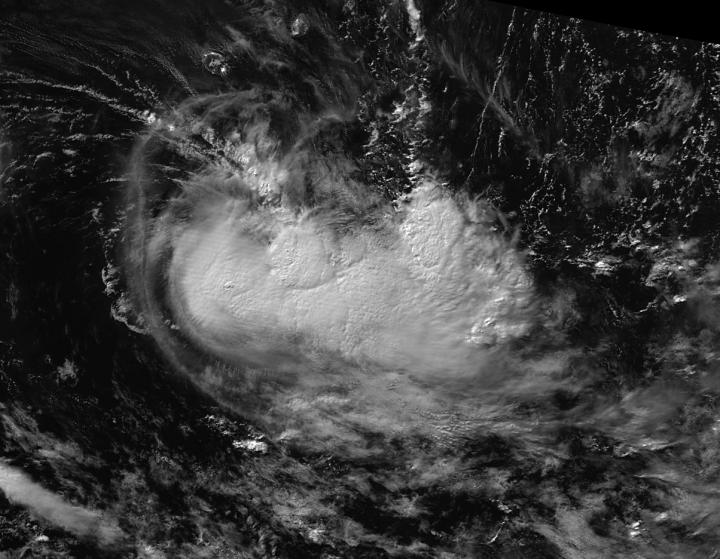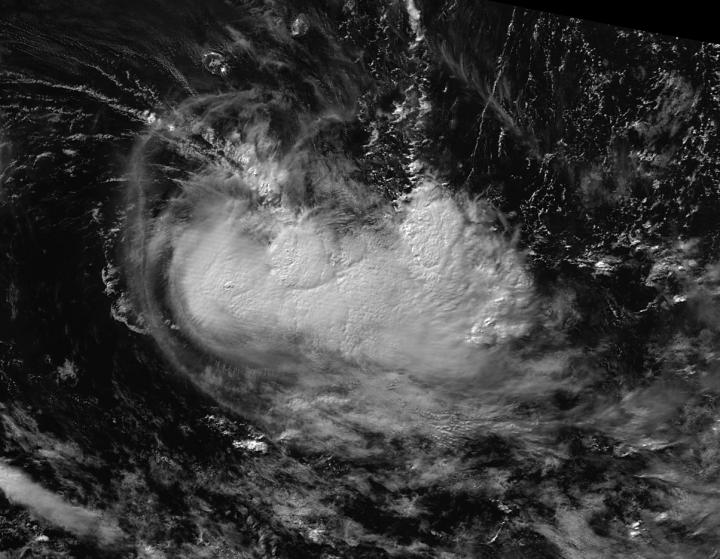
Credit: Credits: NOAA/NASA Goddard MODIS Rapid Response Team
NASA-NOAA's Suomi NPP satellite captured a night-time image of Tropical Cyclone Carlos using infrared light that showed the storm was being stretched out. Carlos is being adversely affected by the Westerlies.
The Westerlies are a semi-permanent belt of prevailing westerly winds in the mid-latitudes that are found in both the temperate zones of the northern and southern hemispheres.
On February 9 the Visible Infrared Imaging Radiometer Suite (VIIRS) instrument aboard the NASA-NOAA Suomi NPP satellite captured an infrared image of Tropical Cyclone Carlos in the Southern Indian Ocean. Infrared imagery detects heat. The VIIRS image showed the thunderstorms around the center of circulation has become more elongated from east to west. Carlos has now moved further into the Westerlies, which have caused the elongation. The winds affecting Carlos are battering the tropical cyclone at a speed between 34.5 mph (30 knots /55.5 kph) and 46 mph (40 knots/74 kph).
On Feb. 10 at 1500 UTC (10 a.m. EST) Tropical Storm Carlos' maximum sustained winds were near 51.7 mph (45 knots/83.3 kph). Carlos' winds peaked on February 9. The Joint Typhoon Warning Center (JTWC) expects Carlos to continue weakening. Carlos was centered near 28.5 degrees south latitude and 60.8 degrees east longitude, about 502 nautical miles southeast of Port Louis, Mauritius. Carlos was moving to the southeast at 17 mph (15 knots/28 kph).
JTWC forecasters expect Carlos to rapidly erode, then dissipate by Sunday, February 12 because of increasing vertical wind shear and movement over cooler sea surface temperatures.
###
Media Contact
Rob Gutro
[email protected]
@NASAGoddard
http://www.nasa.gov/goddard
############
Story Source: Materials provided by Scienmag





